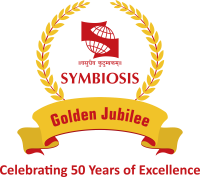ABOUT SYMBIOSIS CENTRE FOR CLIMATE CHANGE AND SUSTAINABILITY
About SCCCS
The future of human societies will be decided on how well we adapt, mitigate and create resilience towards the changing climate. For a megadiverse nation like India, strategies of climate adaptation and mitigation require a deep understanding of bio-geography and socio-cultural diversities. Even as we learn from other nations, Indian researchers must engage in research which considers this diversity.
Institutions within the Symbiosis International University (Deemed university) have the competencies needed to embark on interdisciplinary research, create effective learning programs, and engage in advocacy on climate action. We encourage associations and collaborations which are aimed at action research, project implementation and community participation.
Mission and Vision
Vision of SCCCS
Mission of SCCCS
Mission of SCCCS
-
To conduct contemporary, issue-based, cutting-edge research in climate change impacts mitigation and adaptation and sustainable development, at the local, regional, and national levels.
-
To promote and implement collaborative partnerships with relevant stakeholders such as government organizations, international agencies, industry, civil society organizations, NGOs and academic institutions to improve policy and understanding of climate change to enhance the organization’s capacity in terms of funding and productivity.
-
To demonstrate institutional initiatives and practices that promote climate awareness and environmental sustainability through continuous education and training.
-
To mitigate the level of Greenhouse gas (methane, nitrous oxide & CO2) release at source points.
-
To study the role of Indian landfills and landfill leachate in greenhouse gas emission, carbon sequestration, climate change and in public and environmental health. (Volunteer Networking Project with 35 Universities and institutions)
-
Mapping of Indian paddy fields to assess its contribution in CH4 release and climate change (Developing collaborating with IIT Delhi and IARI-Delhi, NCCS-Pune).
-
Developing sustainable landfill leachate treatment technology for public and environmental health.
-
To create a platform for students, faculty members and staff to gain knowledge about climate change, biodiversity, environmental sustainability, renewable energy sources etc. in alignment with SIU sustainability policy and SDGs.
-
To organize and participate in national events, workshops, seminars, and conferences for promoting climate change and environmental sustainability and best practices.
VISiON FOR THE NEXT 5-YEARS:
Vision of SCCCS
The future plan and perspective of SCCCS to support the vision of SIU will be an integrated approach through extensive research, outreach and promoting education on the different aspects of climate change and sustainability. These include –
-
Use the microcosm and Megacosm based approach to estimate the contribution of landfills in carbon budget climate change and global warming
-
Development of sustainable landfill leachate treatment technology for energy and environmental perspective.
-
Varity and area wise mapping of rice paddies for microbial community involved in methane release.
-
Development of methanotrophic PGPR with iron reducing traits for better crop yield, iron fortification of rice and suppression of methane release from paddy fields
-
Development of Archaeal based bioinoculants for lower risk, and better agricultural sustainability
-
Development of Microbiome bank facility of unique Indian niches for future generation to study the effects of climate change on species extinction and biodiversity loss.
-
Development of microbial based plant probiotics (PGPR) and bioinoculants (biopesticides) to reduce the dependency on chemical pesticides and fertilizers (Collaborating with Defiant Renewable Pvt. Ltd).
-
To Foster the Activities of existing biodiversity cell and promote the Concept of Campus biodiversity and link
-
Nurturing the concept of intact microbiome banking to study the impact of climate change on microbial biodiversity (Collaborating with ARI, Pune)
-
To influence policy formulation and effective implementation of climate change and sustainability-oriented policies through policy-based research and advocacy.
-
To ensure that all activities at the University meet applicable climate, environmental standards, regulations, and guidelines at national and international levels.
Vision of SCCCS
Approaches of SCCCS for future Self-Sustainability, Fund Generation activities and Expansion: SCCCS will use different approaches to make the centre self-sustainable in future. SCCCS will mainly focus (80%) to cater high-quality cutting-edge research in the area of climate change and sustainable development to bring the Centre in highlight at national and international level. SCCCS believe that high quality research and publications resides in the root of all the development and fame and it will support SCCCS and SIU in different ways. Cutting edge research in the thematic area of modern science will give high impact publications which automatically enhance the visibility of the centre among PhD students, funding agencies, collaborators and will assist to attract moe extramural grants, PhD students, and collaborators from national as well as International institutions. SCCCS will try to generate rest 20% fund by conducting and supporting different academic activities like fees of Ph.D students, conducting Certificate Course in Climate change and Sustainability, by conducting 2 Credit course in SIU campus and providing the teaching materials and support to other department. The centres is also very much interested to initiate a M.Sc. Biotechnology with Specialization in (CCSD) or M.Sc. (Hons.) CCSD with existing Biotech Department in future that will give uniqness and attract students. The tabulated proforma of different plan are given in Anexure.


